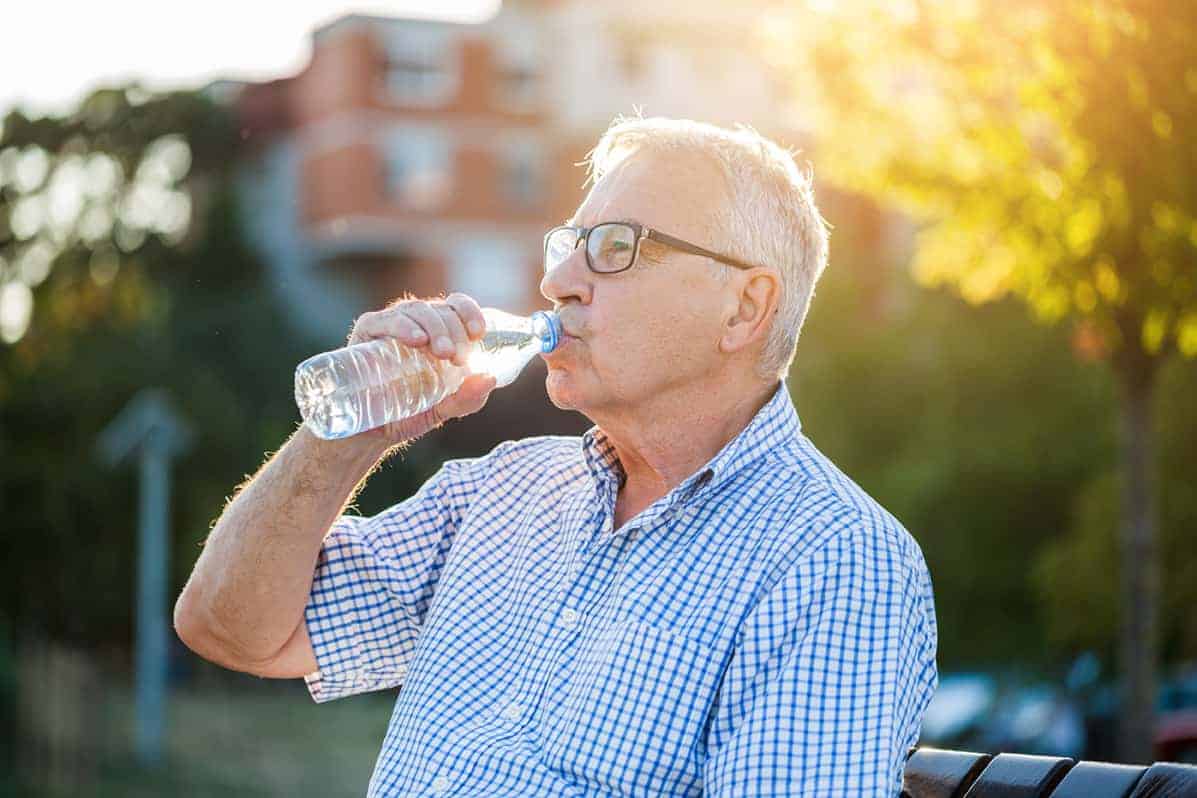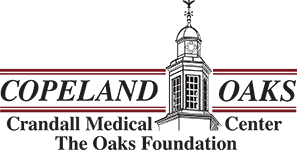
Did you know seniors are more vulnerable to dehydration? The fact is, as your loved one gets older, their sense of thirst diminishes significantly. Many seniors take so little water that by the time they are thirsty, it is usually a symptom of early dehydration. Certain medications can increase the risk of dehydration, especially if seniors are taking diuretic medications to control high blood pressure, so extra water is needed in their diet. And if your loved one has dementia, they may not remember to drink liquids throughout the day.
Prolonged or repeated bouts of dehydration can cause serious health problems for seniors, including:
Compromised Kidney Function – Kidney function declines as we age and those over the age of 60 are more likely than not to develop kidney disease. Our kidneys are responsible for filtering blood, controlling the body’s fluid balance, and keeping electrolytes at the right levels by removing waste. Staying hydrated helps to keep kidneys functioning to the best of their ability.
Compromised Cognitive Function – Three-fourths of the brain is made up of water. Studies have shown that increasing levels of hydration have beneficial effects on cognitive function by improving mood, energy, and attention. Conversely, dehydration in seniors can mimic dementia.
Urinary Tract Infections – It’s not uncommon for seniors to avoid drinking in order to avoid incontinence. But dehydration can lead to urinary tract infections, which can cause pain and even dementia-like confusion.
Constipation – Staying hydrated helps seniors stay regular. And dehydration can lead to acid reflux, gastritis, and even ulcers – because the stomach doesn’t have enough water to produce digestive acid.
Recognize Dehydration in Seniors
Dehydration is the most common fluid and electrolyte problem that leads to hospitalization. It’s important that caregivers be aware of the risks of dehydration, the symptoms, and preventive measures they can take when caring for seniors.
Mild Dehydration Symptoms:
-
- Dry mouth or thirst
- Bad breath
- Dry, cracked lips
- Skin that is dryer than usual
- Headache
- Dizziness
- Decreased urination
- Dark, smelly urine
- Constipation
- Quick pulse
Moderate Dehydration Symptoms:
-
- Fever
- Sunken eyes
- Lack of urination for eight hours
- Confusion, or change in behavior
- Extreme thirst
- Urinating less than usual
- Dark-colored urine
- Headache
- Fatigue
- Dry mouth
- Bad breath
- Craving sugar
- Weakness, light-headedness, dizziness
Hydrating Tools for Seniors
Goals
Experts recommend that seniors consume at least 1.7 liters of fluid per 24 hours. This corresponds to 57.5 fluid ounces, or 7.1 cups. This comes from all sources including soups and beverages.
Drinking water can become a healthy habit upon waking up and with every snack and meal. It’s a great idea for seniors to keep water handy to sip when they’re enjoying their favorite TV programs.
Apps
It isn’t always easy to know for sure that you’re getting the right amount every single day. That’s where hydration apps come in.
Aqualert is a water tracker and water reminder app that helps make drinking a good habit. It sends daily reminders and alerts.
Daily Water is a free smartphone app that reminds seniors to drink water at the right time and helps track the quantity of water they drink too.
Hydrate Daily is a smart phone app that allows seniors to easily monitor their water intake.
My Water is another free water app that reminds, monitors, and tracks water intake. And it comes with a journal feature.
Water Bottles
Timed Water Bottles are a practical way to remind seniors to drink fluid throughout the day. And many come with fun, inspirational messages.
Smart Water Bottles track water intake and some will glow to remind seniors to stay hydrated. Sensor technology can even sync progress with a hydration tracker app through Bluetooth technology.
Hydrating Foods & Beverages
The key to preventing dehydration is making sure that you consume enough fluids and foods that have high water content.
Food
The more water a food or meal has, the better it is for senior hydration. Certain foods have higher water content than others – with fruits and vegetables at the top of a healthy, hydrating menu for seniors. Make an effort to include them in every meal. In addition, lean meats and fish can decrease water loss when a senior’s diet includes high-fat or starchy foods.
Drinks
It’s vital for seniors to drink water throughout the day. Other beverages may also help with hydration – like low-sugar fruit juices, flavored sparkling water, and even milk. Coconut water, Pedialyte, and sport drinks also contain high amounts of potassium and electrolytes, which are excellent for replenishing nutrients throughout the body. Older adults should drink coffee and tea sparingly, as they can have diuretic effects.
Copeland Oaks & Assisted Living
Assisted living at Copeland Oaks provides seniors the peace of mind and security knowing professional care is there when needed. We accommodate the nutrition and hydration needs of our residents by providing delicious, nutritious, and well-balanced meals. In addition, we take special care to:
- Keep water accessible and within reach at all times
- Serve beverages with straws
- Serve foods high in water content like gelatin, melon, and popsicles
- Identify patients at high risk for dehydration
We understand that life is best lived with people who deeply care about you, in a community that supports better living every day. And Copeland Oaks Continuum of Care offers residents, and their families, peace of mind – ensuring that residents are comfortable, safe, and cared for, no matter how their needs change or evolve throughout retirement. Your health and wellness is our primary concern, that’s why our onsite clinic is here to serve you – offering quality care, 24/7– staffed by healthcare practitioners and physician specialists who are better able to offer convenient, patient-focused care.
That means if needs change over time, we have services and facilities on our campus to address them. Plus, our Copeland Life Care Fund provides benevolent assistance to help residents who have outlived their assets – enabling all of our residents to maintain their Copeland Oaks lifestyle and continue receiving quality care.
You have to see it to appreciate it
Take a virtual tour today! Or…
